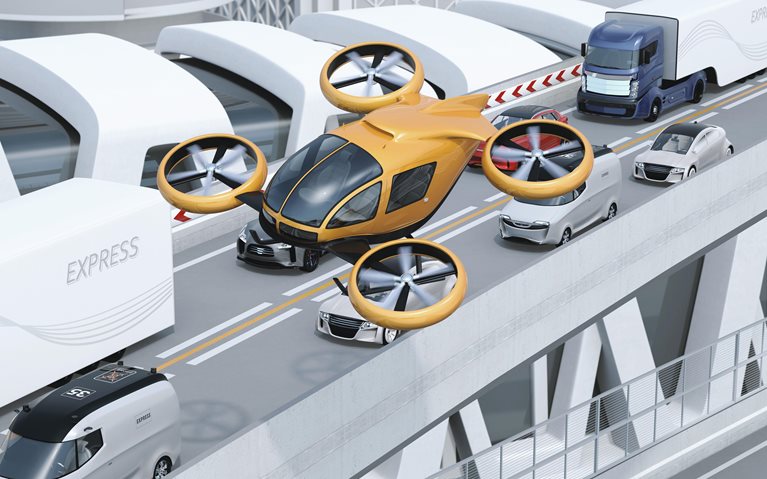The Farnborough International Air Show, one of the world’s largest aerospace and defense tradeshows, returned to England for the first time in four years this summer, providing aeronautics enthusiasts and industry leaders alike a chance to connect and consider the state of an industry facing critical challenges across sustainability, talent, technology, and growth.
This year also marked the first time McKinsey was an official air show partner. Throughout the week, at a purpose-built chalet overlooking the event’s airstrip, colleagues from McKinsey’s Aerospace and Defense Practice hosted hundreds of client executives and industry leaders to explore topics like the future of air mobility, sustainable aviation, diversity and inclusion, and resilience.
“Our presence at Farnborough this year is a perfect expression of the way our practice has grown and expanded,” says senior partner Varun Marya, who helps lead McKinsey’s aerospace and defense work globally. “Today, working in areas from general aviation to space, we help our clients set bold agendas, implement technologies, and develop capabilities to improve their businesses in substantial and sustainable ways.”
This work is informed by our expertise and perspective in the sector, which was on full display at Farnborough. Partner Jesse Klempner moderated a panel on “The Role of Space in Driving Sustainability and Security,” where he was joined by representatives from the European Space Agency, Lockheed Martin, the World Economic Forum, and the satellite internet provider OneWeb. Elsewhere, partner Robin Riedel, who co-leads the McKinsey Center for Future Mobility, spoke on the event’s mainstage about what it will take to coordinate sector efforts and reach net zero by 2050. Later, along with leaders from the Mission Possible Partnership and the World Economic Forum, Robin convened an executive session on sustainable aviation at our McKinsey chalet and interviewed six industry disruptors whose ideas and innovations are shaping the future of aerospace and defense.
Partner Emma Loxton also spoke about the road to net-zero aviation during a CFO panel that focused on building sustainable business models. Held on the event’s mainstage, the panel included executives from Rolls Royce, Shell, Virgin Atlantic, and ZeroAvia, a renewable-hydrogen aircraft developer. In another event, Emma held a reception for women working in aerospace at the McKinsey chalet, bringing together dozens of women executives and their allies to discuss inclusive talent.

Clean skies for tomorrow: Delivering on the global power-to-liquid ambition
That topic was the subject of one of our most widely talked-about reports of the week, Debugging the software talent gap in aerospace and defense. Published on one of the event’s busiest days, the report generated several client conversations and earned coverage in the print edition of Aviation International News’s air show daily.
In it, the authors describe the skills deficit facing the industry, particularly on the tech front. They illustrate the opportunity companies have to “think differently” about their talent pipelines, which can be seized through several tactics, including increasing recruitment among traditionally underrepresented populations. Women, for example, are a third more underrepresented in aerospace and defense than they are in other sectors, and women of color make up just 10 percent of entry-level employees.
One path to improving those figures lies in creating and nurturing enthusiasm for the industry among diverse groups of young people. Late in the week, we hosted the final round of the Air League’s 2022 Global Innovators Challenge. The Air League is a UK charity focused on changing lives through aviation, and this year’s challenge asked participants to propose ideas for accelerating the sector’s transition to zero-carbon emissions.
Six finalists presented their ideas in front of a judging panel that included representatives from leading industry organizations; McKinsey was represented on the panel by Emma. The winning team, “Flush to Fly,” presented its concept to source sustainable aviation fuels from sewage waste, had the opportunity to present their concept at the event’s mainstage at the close of the week.
